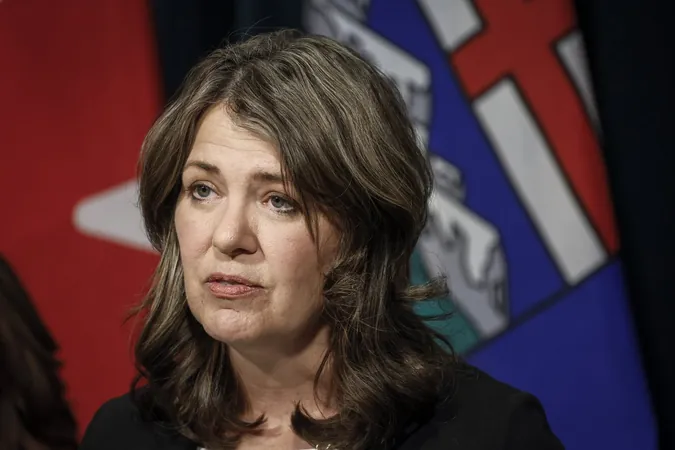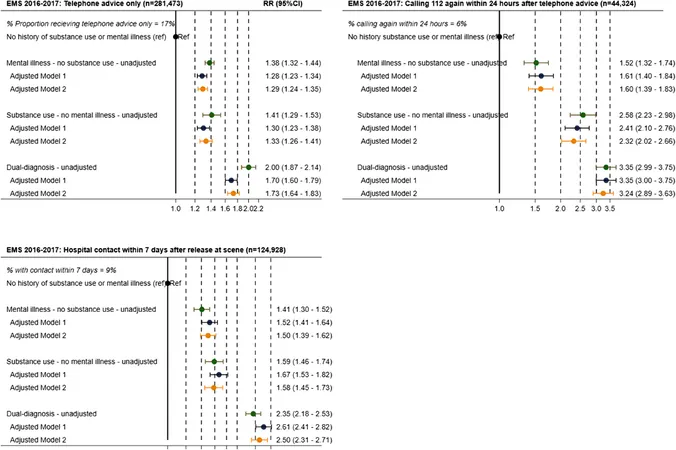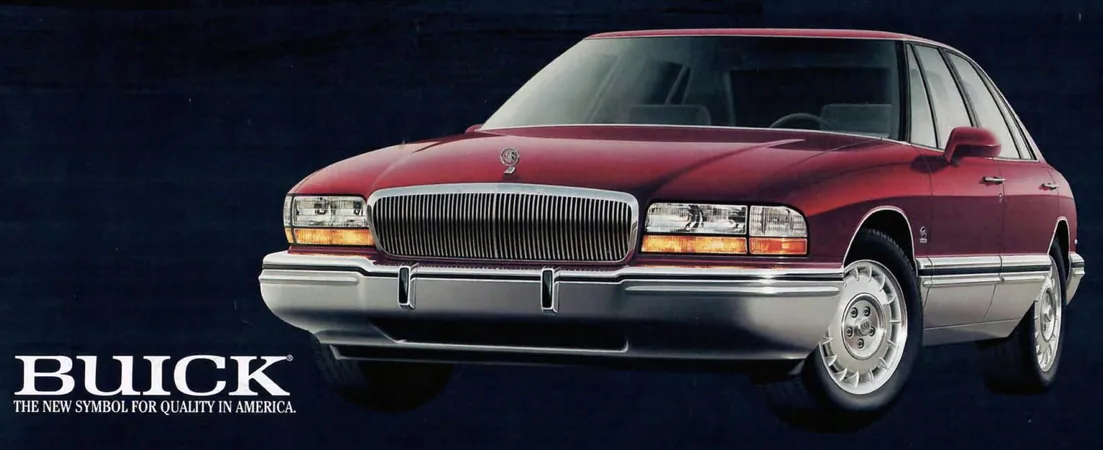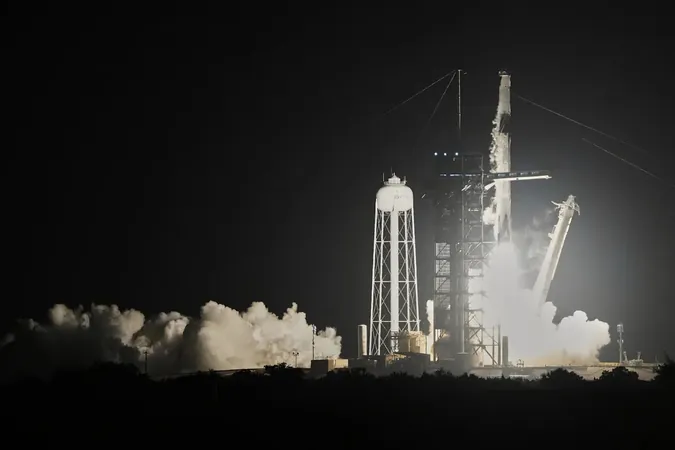
Premier Smith Skeptical of Abolishing Consumer Carbon Tax, Calls for Focus on Industrial Levy
2025-03-15
Author: Emily
EDMONTON — Alberta Premier Danielle Smith, skeptical of the carbon tax changes.
Alberta Premier Danielle Smith, long an advocate for scrapping the consumer carbon tax, is surprisingly unfazed by Prime Minister Mark Carney's recent decision to terminate the carbon pricing scheme. Carney’s move, announced shortly after taking office, removes the consumer carbon levy entirely, a promise he made during his leadership campaign.
Concerns over industrial carbon pricing.
Speaking to reporters in Calgary, Smith emphasized that the real concern lies in how the new federal government intends to impose carbon pricing on industrial polluters. “Every time I have heard the new prime minister speak, he has indicated that he believes industrial rates are too low,” she said. Smith expressed concern that if the federal government increases industrial carbon taxes, it would negatively impact Alberta's economy.
Carney’s announcement and its implications.
Carney’s announcement included provisions for participants in the carbon pricing program who have been receiving rebates; they are set for one final payment in April. This timing coincides with what would have been an increase in the carbon price—from $80 to $95 per tonne of greenhouse gas emissions.
Premier Smith calls for clarity on federal plans.
While Alberta has operated its own industrial carbon tax for over a decade, Premier Smith is cautious about how federal changes might affect the provincial levy. She demands immediate clarity on Carney’s plans before she supports any federal mandates. “That’s why we need an election — to understand just how badly he’s going to penalize the oil and gas sector and what the new industrial pricing scheme will entail,” Smith stated.
Historical tensions over carbon pricing.
The tension between the Alberta government and Ottawa over carbon pricing is not new. Former Premier Jason Kenney and Smith have consistently blamed the federal carbon pricing system for escalating living costs in Alberta. In a significant ruling in 2021, the Supreme Court upheld the constitutionality of the federal carbon pricing framework after Alberta challenged it in court.
Legal challenges and grievances from other provinces.
Furthermore, the Smith administration is currently taking Ottawa to court again regarding an exemption for home heating oil, which they claim unfairly benefits Atlantic provinces at the expense of Albertans.
Not just Smith, but other provincial leaders, including Saskatchewan Premier Scott Moe, have voiced similar grievances about the carbon levy. Moe has pushed for its removal, asserting that it burdens citizens and businesses alike. In 2021, his government also brought a legal challenge against the levy, which was dismissed by the Supreme Court.
Impact of abolishing the consumer carbon levy.
The end of the consumer carbon levy is expected to have a tangible impact—reducing gasoline prices by approximately 17.6 cents per litre and natural gas costs by over 15 cents per cubic meter. Opposition NDP Leader Carla Beck welcomed the abolishment, declaring, 'Great. Finally.'
Looking ahead.
The political battle over carbon taxes illustrates the divide between provincial and federal perspectives on environmental policies and economic impact, raising questions about the future of carbon pricing across Canada. How will these disputes evolve as provinces seek autonomy over their energy resources? Stay tuned!









 Brasil (PT)
Brasil (PT)
 Canada (EN)
Canada (EN)
 Chile (ES)
Chile (ES)
 Česko (CS)
Česko (CS)
 대한민국 (KO)
대한민국 (KO)
 España (ES)
España (ES)
 France (FR)
France (FR)
 Hong Kong (EN)
Hong Kong (EN)
 Italia (IT)
Italia (IT)
 日本 (JA)
日本 (JA)
 Magyarország (HU)
Magyarország (HU)
 Norge (NO)
Norge (NO)
 Polska (PL)
Polska (PL)
 Schweiz (DE)
Schweiz (DE)
 Singapore (EN)
Singapore (EN)
 Sverige (SV)
Sverige (SV)
 Suomi (FI)
Suomi (FI)
 Türkiye (TR)
Türkiye (TR)
 الإمارات العربية المتحدة (AR)
الإمارات العربية المتحدة (AR)